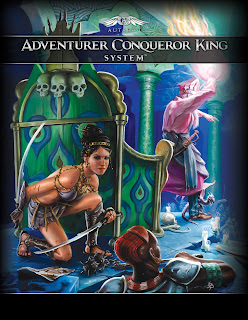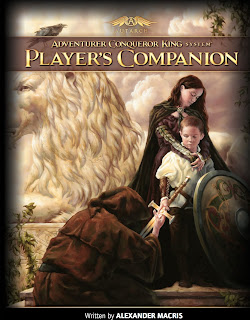I heard the term "neo-clone" used when people talked about Adventurer Conqueror King System (ACKS), and a neo-clone is a game that uses the framework of B/X to create a new experience - and one not afraid to deviate from B/X compatibility to deliver gameplay improvements. You see this in games like Stars Without Number, Mork Borg, Dungeon Crawl Classics, White Star, and a bunch of other great B/X style games that start with what we are familiar with (B/X style rules) and then go their own way.
The retro-clones are games that stick to rules compatibility first. Even if an obvious choice exists to improve gameplay, they do not take it since compatibility with older materials is more important than new experiences or gameplay improvements. Swords & Wizardry, Old School Essentials, White Box, For Gold & Glory, and a bunch of other games fall into this category.
Labyrinth Lord is sort of a particular case; it is a retro-clone since it is backward compatible, but the "system" it emulates is a mix of D&D and AD&D books back when players assumed everything was roughly compatible. We all just hacked it to work together. The game still feels more retro-clone than neo-clone, though the system it emulates did not officially exist other than "this is what we all did back then." The game is based on B/X assumptions and makes a mix of content work well together.
The Castles & Crusades game feels like another system spiritually close to Labyrinth Lord. The system it emulates is AD&D, using a D&D 3-style framework. C&C is compatible with almost everything, but the experience feels like AD&D without much of the crunch and detail. The only other game that does this is Basic Fantasy, which is a recreation of the older B/X games through a D&D 3-style lens. I love these games since they are essentially the "best of" a specific edition but with gameplay improvements.
With strict retro-clones, you need to be sold on the original experience. And once you are in a retro-clone, the experience is about the same in any of them - with a narrow range of differences in mechanics. Castles & Crusades is more of a retro-clone emulator that throws away dozens of tables, charts, and needless cruft and unifying mechanics under the ability score. Of all of them, this is the easiest to run; you do not need a book or referee's screen full of tables, and characters can play straight from index cards.
With ACKS, I keep coming back to this system. It survived being boxed up and put on storage shelves many times, and it keeps finding a way to my "most played" shelves, where I keep the best games and the ones I love reading. One factor helping this game is it is a neo-clone, and while it is like a B/X game - it is not a B/X game in playstyle. There is a focus on the three layers of play: adventurer, conqueror, and king.
This is like one of those great JRPGs where the game starts innocently enough, with you going to shops, buying heal potions and gear for your party, going to nearby dungeons, and grabbing loot. And then, at a critical moment, the entire game changes. You and your friends find yourselves in a middle of a war or uprising, and you become important. The mid-level game starts, and you are finding your place in the world. You begin changing the world. And at the highest levels, you are ruling a kingdom or the world.
D&D 5 and many retro-clones are based on the flawed "adventure until max level" grind. The reason many games stop at low to mid levels is because things are more of the same and uninteresting. So what that your damage doubles and the monster hit points also do? So your loot is now more powerful, but you need it anyway to keep up with the challenge rating? It all gets boring after a while.
Hence this is why you see a lot of monster and treasure books with challenges and rewards that scale to the maximum level of the game. You need higher number-value monsters to fight higher number-value heroes! It all feels like a mobile game after a while, where your level 878 fighter and level 799 wizard are taking on some monster in the high-hundred-number monster rating.
The stories are always better than the rules in these games. I don't doubt that. But the rules with the scaling numbers are often atrocious and unnecessary for fun and only exist to give you that mobile game progression hit.
With ACKS, you have that "first-level" character experience three times during your character's path - once at every play tier. Your character is a beginning adventurer. Then, your character is a beginning conqueror. And finally, your character is a beginning king. The game uses a simple B/X-style system as its design language, but it stops there. It adds a few systems the game needs to deliver on the experience (proficiencies), simplifies a few things (encumbrance), and provides a balance of familiar classes and new ones.
The paths of higher-level pay are also expanded, with rogues being able to establish a thieves' guild, warriors having armies, constructing domains, divine classes gathering power and establishing temples, and magical classes with experimentation, crafting new spells, and creating magic items. There is much to do at higher levels, reasons to spend gold, and many sandbox-style options for changing the world around you. And at the highest levels of play, you are running a kingdom, building settlements, and engaging in epic world-changing adventures of great importance.
The issue with a lot of retro-clones and even newer games is the "adventure to max level" assumption and providing little or no options for sandbox play. You get put in the adventurer box, and you can never escape from it. ACKS feels like a fantasy "Grand Theft Auto" where at the lower levels you are running around a sandbox doing minor missions, and then as you gain influence and notoriety - the nature of the sandbox changes, and you are taking over the map, destroying enemy strongholds, and getting involved in new things to do. At the highest levels, you work towards changing the world, or at least a part of it, and establishing a kingdom or other organization that becomes a part of the world's lore.
And you can play good or evil characters and work towards any goal without the "shackles of the adventurer" being put around your wrists. Your goals are very sandbox-driven. Do you want to be an evil worshipper of the fallen ancient gods, discovering power, uncovering secrets, gaining followers, and destroying good kingdoms? Go ahead. Again, the GTA model applies here, be paladins or bandits, generals or merchants, divine clerics or cultists, rulers or destroyers, and you are even free to join the bad guys' side and rule over orcs and beastmen.
The default assumption of "playing an adventurer" is a lot of games rob players of control and agency. The upgrade tracks and paths in many games make "farming the treasure, power, and spell lists" the entire game. Traditional dungeon games make you the servant of the rules. ACKS is a fantasy sandbox game, and your motivations for "why you are here" comes from you.
And you can start new characters and adventure in a changing world and still go back to your rulers and play high-level adventures of great importance every so often (or set tax rates, deal with bandits and rebellions, and do all that cool 4X stuff). It does not do "lip service" to domain management like some games that merely say "and you can" - it gives you the rules to do all that cool stuff.
And since it uses old-school sensibilities, if you want to change a rule, add a system, or make a ruling on the spot that "X happens," you don't break the game. Does it fit the moment and story? Then it happens. Fun is more important than making something fit into the rules.
It is rare to find a B/X style game that "does it all," but ACKS is that game.























